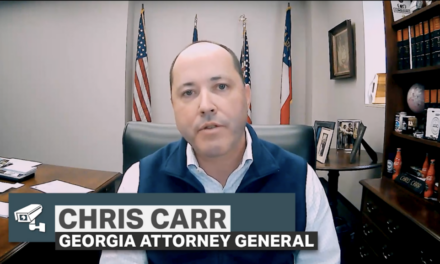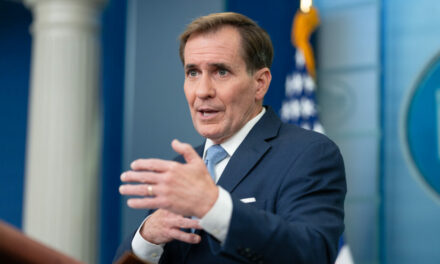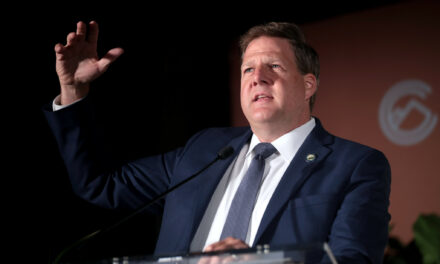We support our Publishers and Content Creators. You can view this story on their website by CLICKING HERE.
The clock is ticking on an appeal that aims to honor former independent candidate Robert F. Kennedy Jr.’s wishes to have his name removed from swing state Wisconsin’s general election ballot — as the Democratic National Committee plays political games for electoral advantage.
Attorneys representing RFK Jr. have appealed Monday’s ruling in Dane County Circuit Court. The lower court judge agreed with the Wisconsin Elections Commission’s previous 5-1 ruling that the ex-candidate must remain on November’s ballot.
Dane County Judge Stephen Ehlke found state law bars candidates from exiting the race after they’ve filed nomination papers. Ehlke said there are no exceptions.
“However, courts are required to apply the law as written, not as some party wishes it were written,” Ehlke said, according to a story in the leftist Wisconsin Examiner.
Overseas ballots are expected to begin being sent out tomorrow morning, so much hinges on the appeals court’s decision on the petition seeking an injunction.
RFK Jr.’s appeal before the Second District Court of Appeals in Waukesha asserts the former candidate is being treated differently, and unconstitutionally so — in the pursuit of Democrat Party political games.
The scion of America’s famous Kennedy family suspended his presidential campaign last month and endorsed former president and GOP presidential nominee Donald Trump. Kennedy believes — and Democrats know — that having his name on the ballot could take critical votes away from Trump, particularly in battleground states like Wisconsin.
The original motion to appeal, filed last week, argues that RFK Jr. is being treated differently as a third-party candidate. In fact, the appeal argues the whole system is out of order.
“Here, Wisconsin deadlines for ballot access. … hamstring third-party candidates, while giving Democrats and Republicans a greater opportunity to disassociate from a candidate or for a candidate to disassociate from the campaign — as [President Joe] Biden did,” the filing asserts. Biden, following his disastrous debate with Trump in late June, bowed out of the presidential contest despite having easily secured the delegates to win the Democrats’ nomination. He was replaced by his unpopular vice president, Kamala Harris.
State law allows the two major parties until 5 pm. “on the first Tuesday in September preceding a presidential election” to certify the names of their nominees with the Wisconsin Elections Commission. Independent candidates must commit a full month earlier.
“It’s worth adding (for a third time) that Kennedy had to withdraw before the DNC had even announced its candidate or his opponent,” the motion states.
Historically, the law has been questioned by Wisconsin’s top law enforcement official. The motion cites a 1980 opinion in which Wisconsin’s attorney general weighed in on a move to keep the Natural Law Party’s scandal-plagued vice presidential nominee on the ballot. The attorney general said doing so “presented a substantial disability for his campaign.”
“[T]he voters don’t benefit from different rules for different parties, and for that matter, the Equal Protection Clause doesn’t allow it,” argues the petition, filed in the Waukesha court last week.
But equal protection means nothing to a Democrat Party bent on keeping RFK Jr. on swing-state ballots to draw as many votes from Trump as possible. The DNC has fought tooth and nail against RFK Jr.’s request to withdraw while working as hard to drive the competing leftist Green Party ticket off the ballot to bolster Harris and running mate Tim Walz’s chances in what is expected to be a narrowly contested election.
“In the no-holds barred world of presidential elections, few things should come as a surprise. Yet, the Commission (again, made up of appointees from the two major parties) has accomplished that. It’s used Kennedy, a third-party candidate, as a means of creating voter confusion,” the petition argues. “And it has done so by creating a tiered system for a politician’s ability to withdraw from the ballot; it has done so by compromising Kennedy’s First Amendment rights.”
Matt Kittle is a senior elections correspondent for The Federalist. An award-winning investigative reporter and 30-year veteran of print, broadcast, and online journalism, Kittle previously served as the executive director of Empower Wisconsin.

 Conservative
Conservative  Search
Search Trending
Trending Current News
Current News 





